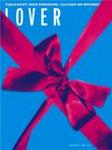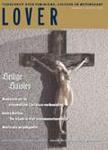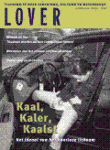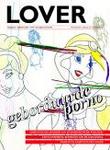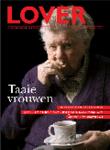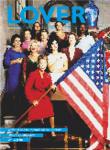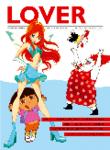LOVER (Magazine)
type=digital_archives
LOVER is cheeky, opinionated, sharp and topical, with an eye for human interest. The feminist analysis in this Dutch-language magazine is so accessibly written, you can kick up your feet and enjoy a good read. LOVER is a source of inspiration for women (and men) who view the world with a critical eye.
LOVER keeps you informed about the (in)equality of the sexes and provides you with arguments you need to counter sexist and racist remarks. It also reveals how different and unique women are, both in the Netherlands and beyond.
LOVER – which rhymes with OVER, not HOVER – was established in 1974 during the heyday of second-wave feminism. What started as four mimeograph sheets inlaid in the newsletter of the Dutch emancipation group Aktiegroep Man-Vrouw-Maatschappij, soon became a magazine in its own right. Over the next three decades, LOVER underwent quite a few changes. Today it is one of only three Dutch magazines that still call themselves feminist (along with Opzij and Tijdschrift voor Genderstudies).
conceived as a regular literary overview, hence its name: an abbreviation of Literary OVERview. ‘So much is being published about emancipation these days that it is hard to stay informed, even if you limit yourself to the most important literature,’ wrote the editors in the first issue of LOVER. That issue included a summary of an essay* on women’s education by second-wave feminist Joke Kool-Smit, entitled ‘Marie’s mother is capable of more’ [‘De moeder van Marie kan méér!’]
Today, LOVER is a fresh looking, well-designed, 60-page quarterly with its own mission statement: ‘LOVER aims to contribute to the emancipation of women and the improvement of their position in society. LOVER does so by producing a magazine which reflects a feminist point of view on current issues in politics, culture and science. LOVER intends to stoke the debate about women’s representation in culture and media and about how politics and policy influence the position of women and men.’
These days, LOVER no longer publishes literary overviews. These are now included on the website of the International Information Centre and Archives for the Women’s Movement. LOVER has instead taken a more journalistic direction, offering articles, columns and reviews.
(If you would like to know more about the history of LOVER, see Romaike Zuidema’s on-line article in LOVER 2003, nr. 4.)
One thing has not changed since LOVER’s inception. Its editorial board consists of unpaid enthusiasts. For many an editor, LOVER has been the stepping stone to a succesful professional career.


